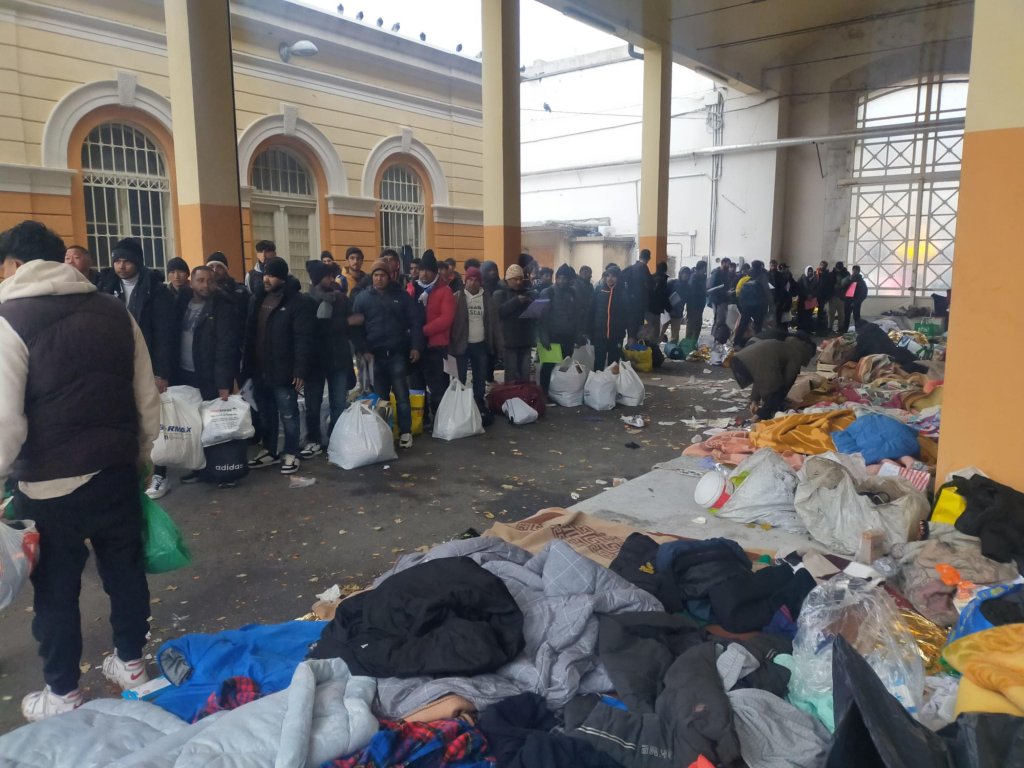Key Takeaways:
- Over 200 migrants were evicted from Trieste’s Old Port in November 2024 due to redevelopment plans.
- Most were transferred to hosting centers outside the Friuli Venezia Giulia region after health checks.
- Local authorities emphasize border control and restoring law while dealing with a continued flow of migrants from the Balkan route.
Introduction
Trieste, a city often celebrated for its historic charm, recently became the stage for a contentious migrant eviction. On November 20, 2024, over 200 asylum seekers were forcibly removed from the Old Port, a dilapidated area they had turned into a makeshift refuge. While local authorities cite redevelopment plans and the rule of law as reasons for the eviction, the human stories behind the statistics reveal the deep challenges of migration.
A System Under Strain
The eviction operation was a large-scale effort involving over 100 security personnel, UNHCR staff, healthcare workers, and volunteers. Migrants were relocated to hosting centers outside the Friuli Venezia Giulia region, with provisions like food and medical checks arranged during the process. Despite these measures, the event underscores a glaring issue: Italy’s infrastructure struggles to support the constant flow of migrants, particularly those arriving via the Balkan route.
Trieste has long been a hub for migrants seeking safety and opportunities in Europe. The Old Port became a last resort for individuals with nowhere else to go after the closure of the nearby Silos warehouse in June. Abandoned buildings and insufficient resources painted a grim picture of life for these displaced individuals, who relied on tents, blankets, and donations from volunteers to survive.
Stories of Survival and Loss
Among the displaced were people like a Bangladeshi man who came to Trieste hoping to support his impoverished family. His tearful recounting to authorities highlighted the profound economic disparities driving migration. Similarly, two young Pakistani men had used the Old Port as a temporary shelter while planning to travel to France. Their lack of resources left them stranded in Trieste for months, caught in a limbo of survival.
Volunteers played a critical role, offering food and warmth, but the conditions deteriorated rapidly. Tents filled with leftover food, medicines, and personal belongings reflected the migrants’ precarious lives. Yet, for many, Trieste was not just a transit point—it was their only hope of stability in an increasingly hostile environment.
Political and Social Implications
Governor Massimiliano Fedriga defended the eviction as a necessary step to restore order and send a message to those seeking to stay illegally in Italy. His remarks highlighted a growing tension between humanitarian needs and stricter immigration policies. This approach is part of broader border control efforts, but it raises ethical questions about the treatment of vulnerable populations.
The eviction is not an isolated incident. It mirrors the June operation at the Silos warehouse, where hundreds were similarly displaced. These recurring actions suggest a systemic issue in handling migrant flows and providing adequate shelter and integration options. With arrivals from the Balkan route continuing unabated, local and national authorities must grapple with finding sustainable solutions that balance legality with compassion.
What Lies Ahead?
The situation in Trieste exemplifies the broader European migration crisis, where cities bear the brunt of geopolitical and socio-economic pressures. As redevelopment projects advance and border policies tighten, the displaced face dwindling options. Without comprehensive strategies addressing root causes and integrating migrants into society, evictions like these may only deepen the crisis.
Italy stands at a crossroads: will it prioritize enforcement or forge a new path that reflects both its legal obligations and humanitarian values? The world watches as the stories of those evicted from the Old Port continue to unfold—a sobering reminder of the human cost of migration policy.










